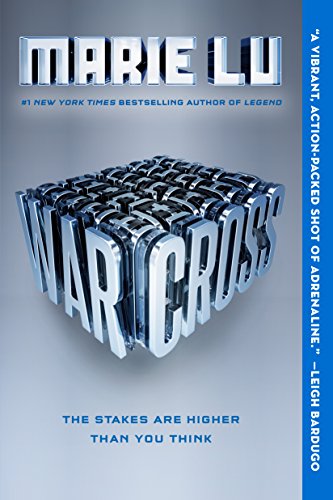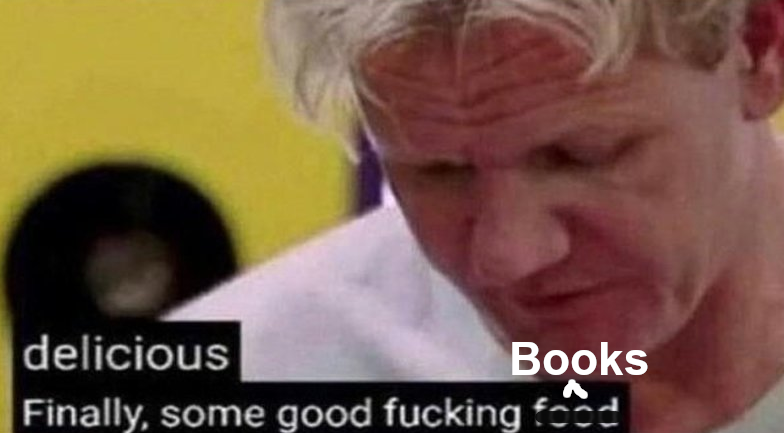






Down from 400+ unread books on my Kindle to 279!
Orphan Island by Laurel Snyder. Set on a small island, nine children (always only nine) live together with no adults. Everything on the island is completely safe (even snakes are just colorful, never dangerous). All their food and needs are supplied.
Once a year, a rowboat shows up on shore with a very young kid in it. The kid gets out and joins the group, and the oldest one gets in and sails off, never to be seen again. (The oldest kid always feels the need to leave, like it's time.)
The book felt like there was no plot (which sounds like a bad thing, but it worked here). It was just the kids living on the island together, day to day life.
Then one day the rowboat comes and the oldest kid leaves, leaving the main character (young teen) as the new "elder". The book goes for another year of day to day life. Then it's her turn to leave, but unlike every other elder in the history of the island, she doesn't want to go.
POTENTIAL SPOILERS IN THIS PARAGRAPH. While this book has been on my Kindle for 5-6 years, I somehow remembered reading a review of someone saying the island was an afterlife -- a holding area before the dead kids stay before (whatever) happens next. I read the story through that view of it, and it really fit. So I was very surprised when I went to read reviews on Goodreads when I was done and most people said the island represented childhood, and when kids got old enough, they left the island (grew up). That fit as well.
Be warned there are no answers at the end of the book. Not a single question is answered, no information about what happened is given. I think that's great, it makes you think about the story, but some reviewers raged about it.
Wolfsbane and Mistletoe by Charlaine Harris (Editor). An anthology, all the stories in it had to involve werewolves and Christmas. I can see why I got this book many years ago -- that seems like an interesting combo of themes.
Every time I read an anthology book, I get less and less happy with them. This book has 15 stories in it, so 15 chances to find a new author I like, right? But instead it was miss after miss after miss. And unlike a non-anthology book, with an anthology you can't just give up on the book when you're not enjoying it, you have to try every single story in it...
The first story, and a couple others, were set in an author's preexisting book series. I HATE those. It feels cheap on the author's part -- write something original for this anthology! Not a short story you can later just package with your series.
A couple stories had major editing issues (grammar issues). How they made it through as-is into the book is beyond me.
A couple stories barely had anything to do with werewolves at all (usually focusing on vampires instead).
Most stories I just didn't enjoy and didn't finish.
Of the 15 stories, I finished a grand total of three, and those three were only good enough to finish, I didn't enjoy any of them at all.
DNF45)
Journey Beyond the Burrow by Rina Heisel. This was one of those sad "talking animal" books where the animals might as well just be human. They talked like humans, mostly acted like humans, and the story just didn't keep my attention.
46)
The Emperor's Blades by Brian Staveley. Bad author, no biscuit. A roughly million page book, a doorstop of a book, where every woman's chest was described in great detail. Anyone overweight was an evil character. A story in great need of both an editor and a less misogynic author.
47)
The Beginner's Guide to Curses (Spellchasers Book 1) by Lari Don. I read a lot of MG/YA books. Good ones are great reading for adults as well, but this one wasn't one of them. Plot was about a girl who got cursed (because she yelled at a man (a witch) because he threw dog poop on her...), and how she had to go to a school to learn how to break curses.
48)
The Evolution of Claire (Jurassic World) by Tess Sharpe. I was so excited about this one! A book filling in the backstory of a Jurassic Park movie character? Sign me up! ...but turns out it was the woman who ran from a T-Rex in
high heels. The story never hooked me, and as soon as I realized who Claire was in the movies, I lost all interest. Reading other reviews, it wouldn't have been a story I liked anyway (unbelievable romance, completely predictable plot). Oh well.
49)
Warcross by Marie Lu. Very rarely, I somehow get a duplicate of a book on my Kindle. This is only the second time in my memory that it happened. As I was reading this one, I was certain I had read it before. Turns out I had, and I hadn't liked it much the first time either.




































































